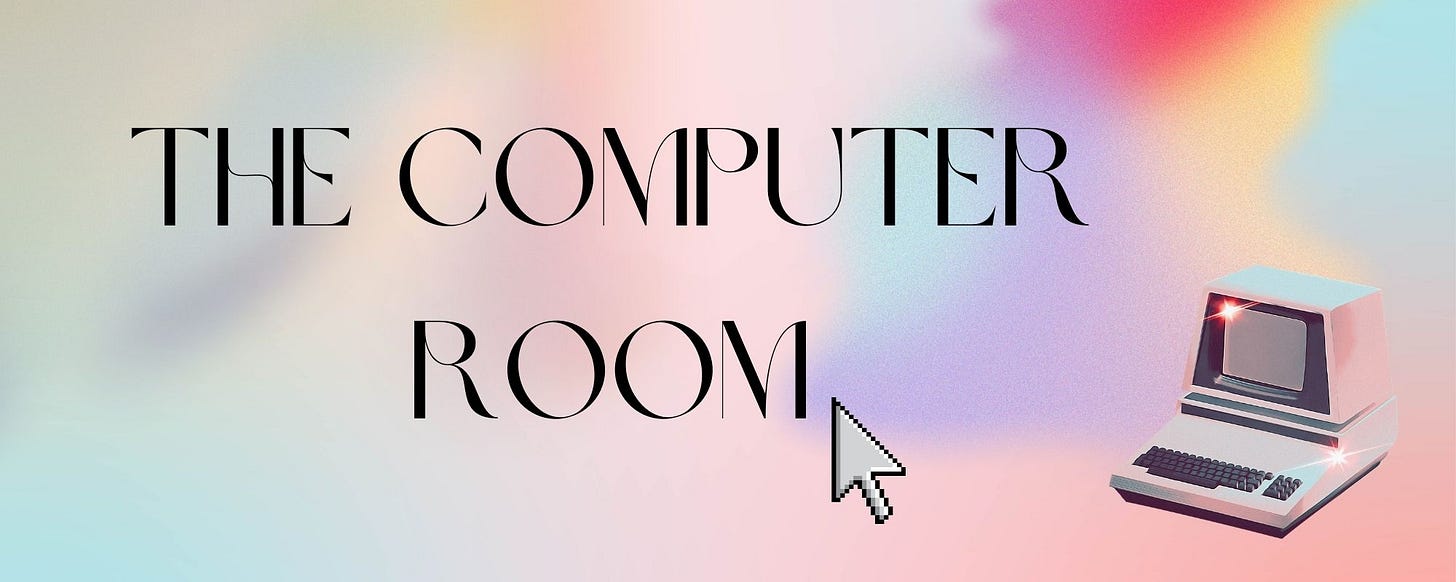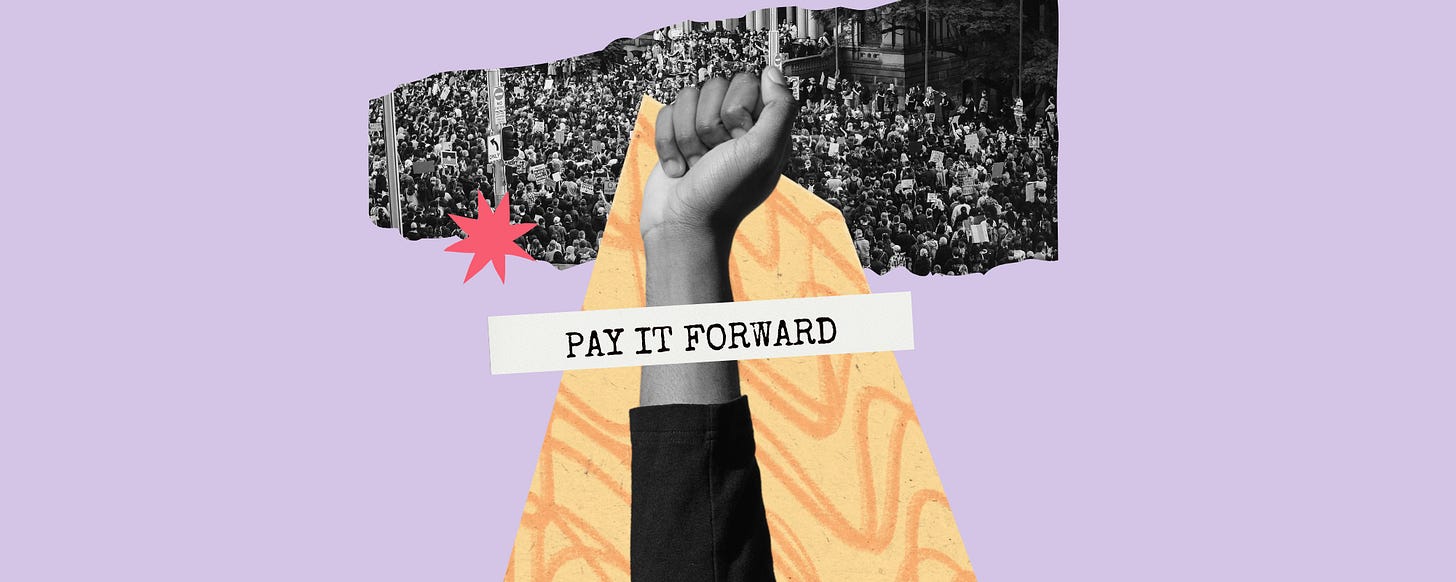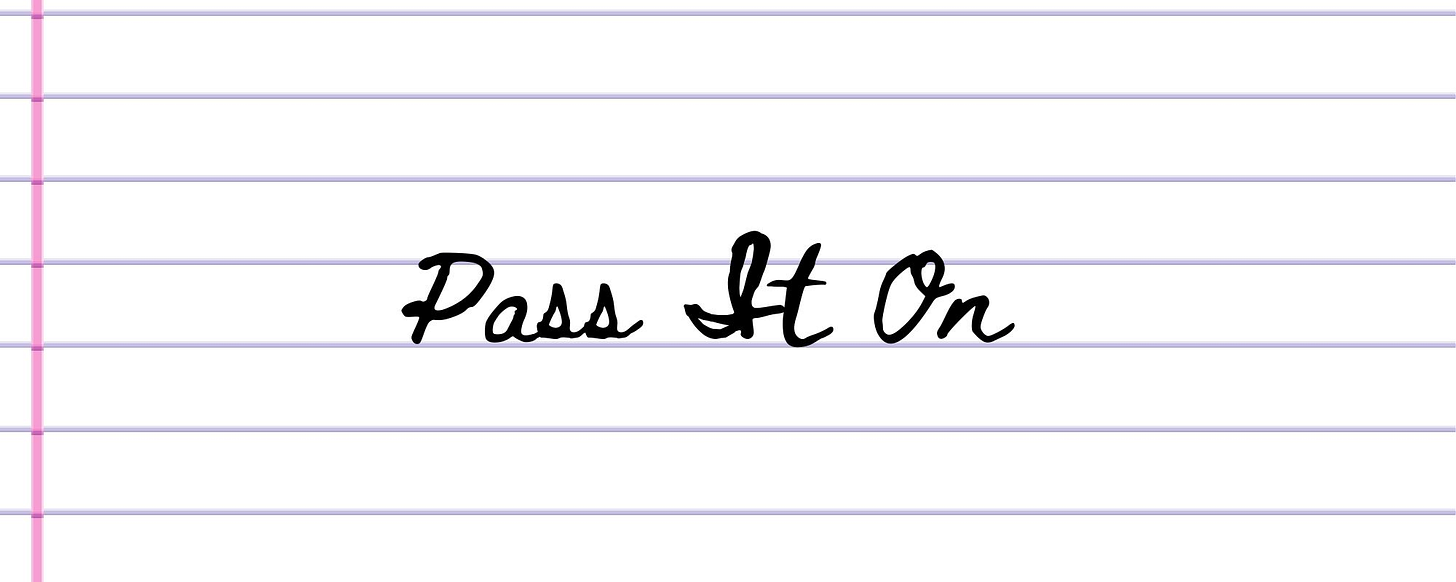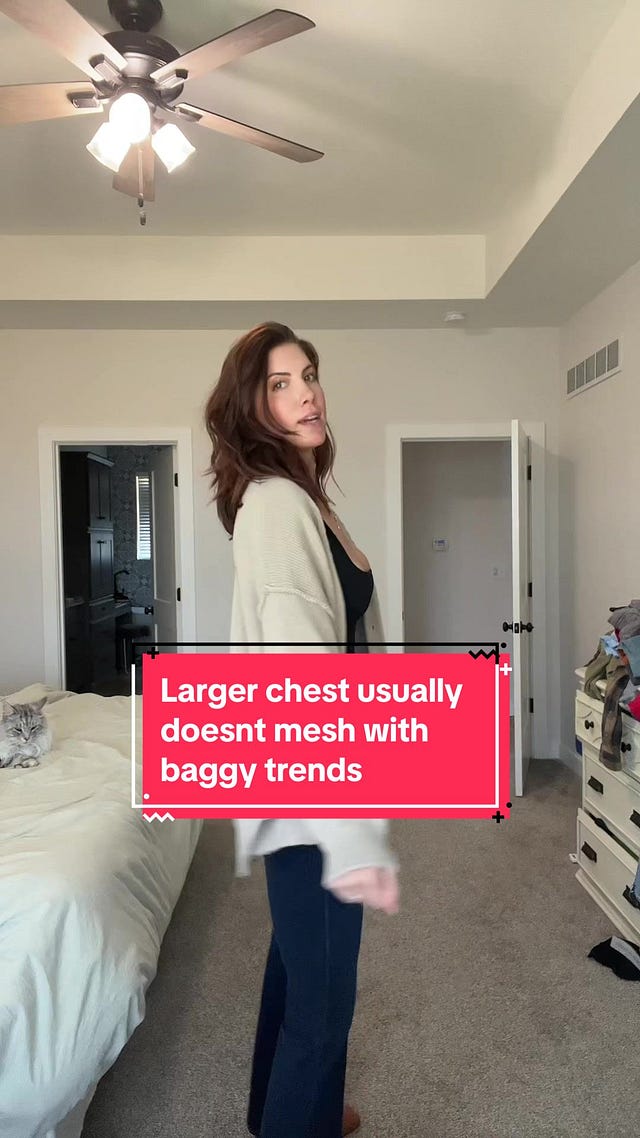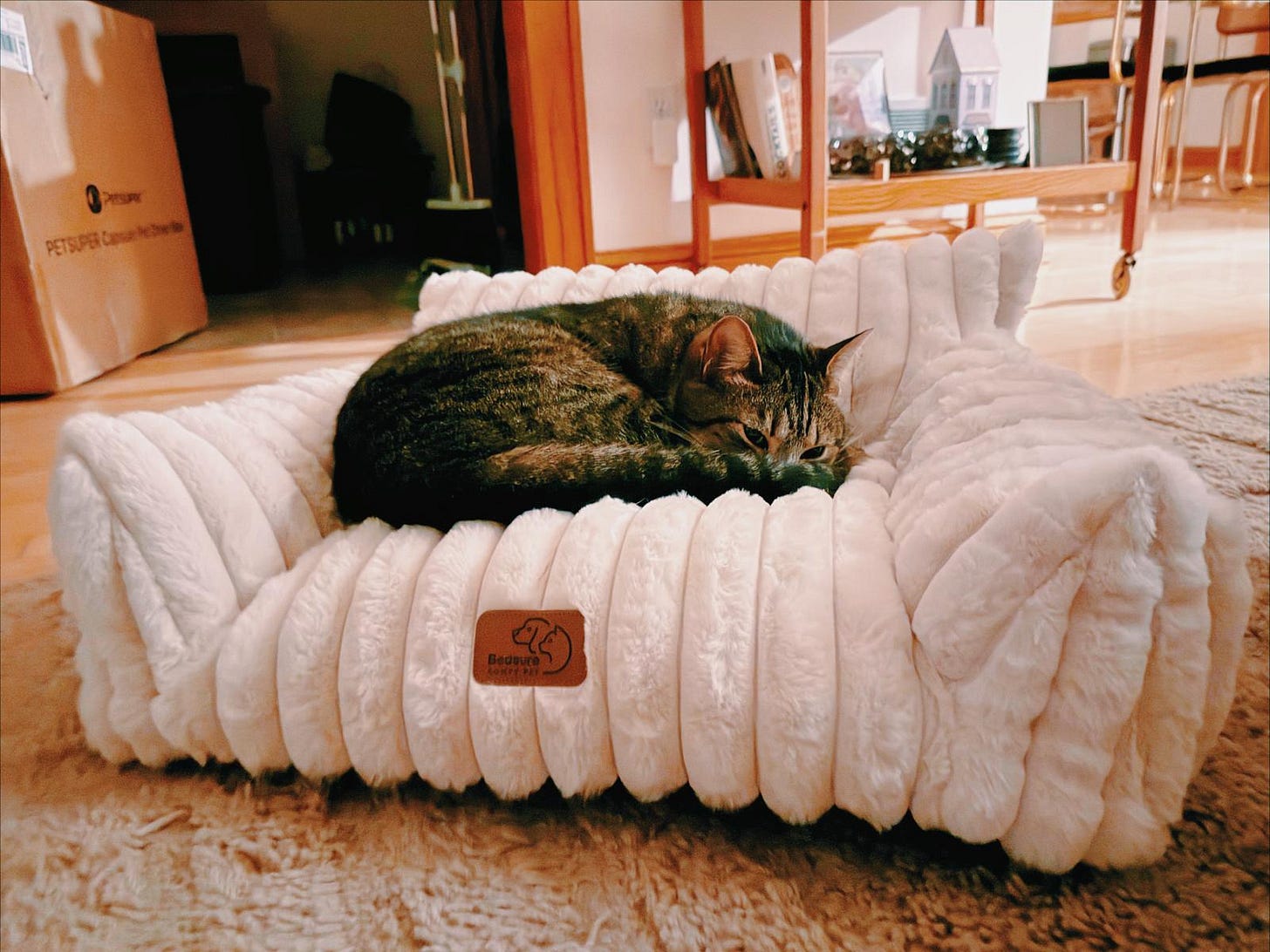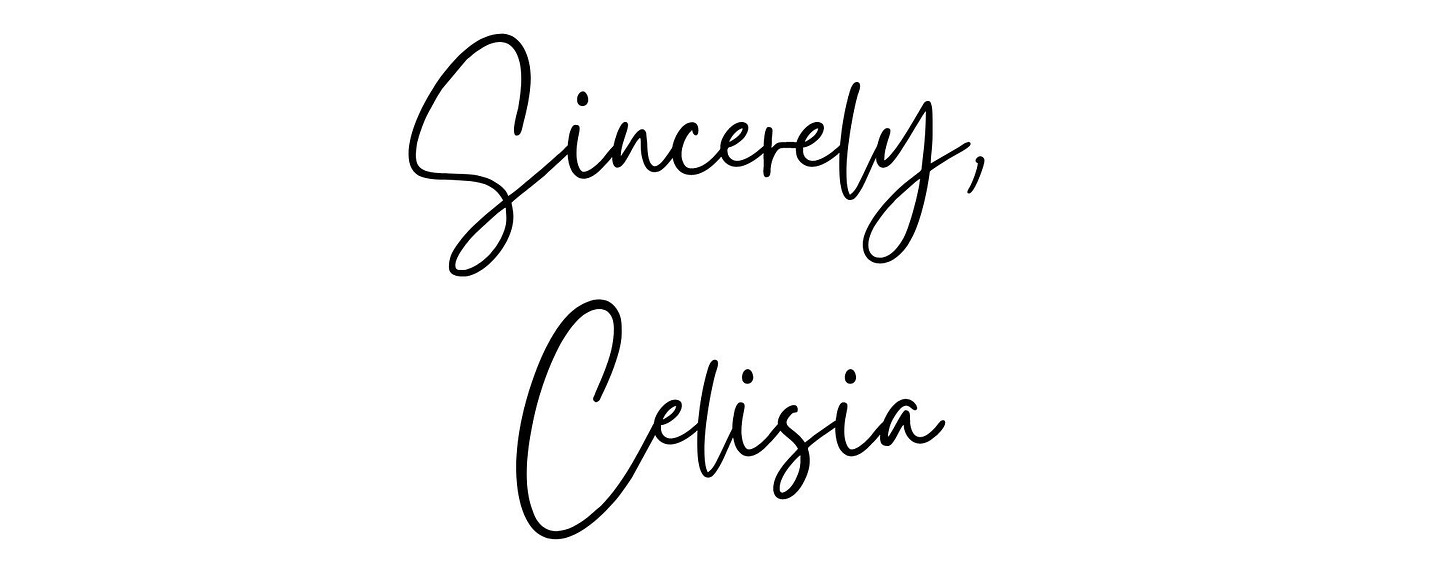If You Don’t Know Who You Are, They Win (Issue #109)
In this month’s essay I’m writing about identity, politics, and what we lose when the work of self-reflection is under attack.
I know how frustrating paywalls are! When possible, I’ll try to offer gift links through my subscriptions to support access to high-quality journalism.
Hi friends,
When I was in elementary school, my mom told me I could say her partner was my aunt.
Not because she was ashamed, but because she understood the risk. She knew the world wasn’t built to protect families like ours. That being raised by two gay moms could put me in danger. It was an early lesson, and one I never forgot: identity isn’t just about who we are. It’s about who we’re allowed to be.
And so, for a long time whenever someone said they “weren’t political” I was deeply offended. Not because I think everyone needs to be glued to the news cycle, but because for me—and for so many people whose identities are politicized—politics has always felt deeply personal.
But lately, I’ve started to see something I couldn’t before. When someone says they’re not political, what they often mean is: no one ever asked me to think about who I am.
The truth is, nothing feels personal when you’ve never had the chance to know yourself.
And lately, I’ve been thinking about how that kind of reflection, that work of figuring out who we are? Its under attack in a way I’ve never seen before.
Across the country, we’re watching a coordinated effort to dismantle the spaces where identity is shaped. Trump has slashed grants from the largest arts funder in the United States. His admin recently proposed cutting tribal college funding by more than 90%. Books are being pulled from schools and libraries, books that show what it means to be gay, or Black, or different. This isn’t a just culture war. It’s a control strategy. Because if people never get the chance to reflect on who they are, they’re less likely to know what they care about. And if they don’t know what they care about, they’re easier to manipulate, easier to silence, and easier to remove from the conversation altogether.
That’s what makes these policies so dangerous: they target the places where identity formation happens.
Take college. It’s often the first time young people get to learn, think, and live outside their home environment. It’s where they build community, question assumptions, develop their own worldview, and begin to understand their place in the world. Art programming works the same way, creative expression is one of the best tools we have to make sense of who we are. And workplace DEI efforts? They’re not just about antiracism or “wokeism.” They invite people, sometimes for the first time, to think about the identities they hold and how those identities shape the way they show up in the world. For many adults, that might be their only structured opportunity to reflect on selfhood at all.
But everyone has a story. Everyone has values. And everyone (yes, even the white guy who thinks none of this applies to him) has identity.
Maybe you were raised by a single parent who taught you resilience. Maybe you’re a first-generation college student who believes deeply in education. Maybe your dad drilled into you the importance of hard work and showing up for your people. Maybe you’re a coach, or a veteran, or someone who found their voice in a church group. All of that is identity. And it shapes how you see the world, even if you’ve never named it out loud before.
When people don’t have the chance to reflect on those parts of themselves, we don’t just lose insight, we lose the very conditions that make democracy possible. We lose voters who know what they’re voting for. We lose parents who can talk to their kids about values. We lose artists who understand the stories they’re telling. We lose leaders who lead with integrity. And we lose communities capable of holding complexity, disagreement, and care. Without the scaffolding of identity, it becomes easier to reduce people to a side. To flatten everything into “us vs. them.” That’s the world Trump and his allies want to build. A world without nuance. Without self-reflection. Where curiosity is replaced by conformity. Where individuality is stripped away in favor of obedience.
But I think we can fight back. And I think it starts with reflection. With conversation. With the stories we tell and the questions we ask, not just to ourselves, but to each other.
Because identity doesn’t get built in a vacuum. It’s shaped through connection. Through late-night talks with friends and dinner table debates. Through being challenged. Through listening to the people around us name who they are and maybe hearing something in their answer that reshapes our own self-conception.
So as you move through this week, here are a few questions that I think are worth asking, not just alone in a journal, but out loud, with the people in your life:
What do I believe people deserve?
What’s something I learned young that still feels true?
What’s something I’m proud of that has nothing to do with my job or money?
Who are the people that when I’m around them, I feel most like myself? And why those people?
What is something I do that makes me feel connected to a core part of who I am?
Where are the places that I frequently visit and why do I like going there?
What does family mean to me? How about partnership? Friendship?
What is something I would never do, but that I admire other people for doing?
Ask them at dinner. On a walk. In the group chat. Let it start something.
Because this kind of reflection? It’s not frivolous. It’s the groundwork for resistance.
A round-up of things to watch, read, and listen to as you head into the weekend.
The Daily Podcast: Have We Been Thinking about A.D.H.D. All Wrong? (gift link)
I appreciated the ways this deep dive balanced the validity of people’s experiences and how life changing meds can be, while also explaining how our cultural understanding of ADHD. and the ways we think about treatment probably needs to shift.
I’ve been a Ginny + Georgia fan from the jump, and this season continues the trend. The character arcs are so rewarding, and the acting is phenomenal!
The Ezra Klein Show: Our Lives Are an Endless Series of ‘And’ (gift link)
I’ve been recommending this episode to pretty much anyone who will listen. In an interview with author Kathryn Schulz, the episode explores themes of life, mortality, and joy, in a really beautiful and moving way.
Action items to support and care for the world around us.
In February, 30-year-old Adriana Smith suffered a catastrophic stroke and was declared brain-dead in a Georgia hospital. The standard procedure after someone is declared brain-dead is to give the family a few hours or days with their loved one before disconnecting the body from life support. However, she happened to be 9 weeks pregnant at the time, and without any say from Adriana’s family, her body was kept on life support for *four months* to allow the fetus inside her to grow before the baby was delivered and she was finally taken off of life support. It is a horrifically dehumanizing story, and now the family is left with not only the grief of this tragedy, but medical debt from Adriana’s stay in the hospital.
Adriana’s mother, April, has set up a GoFundMe to support her family in this unbelievably difficult time, and it would mean the work if you could donate here.
For six months, 16-year-old Joseph complained of severe headaches. He visited the ER with his mom several times, and each time he was told it was part of post-concussion syndrome from a previous fall. Soon, Joseph had trouble in school. He would appear to zone out in class, and people accused him of faking his headaches. The school threatened to file truancy against Joseph, which would mean his mom would be facing jail time. Eventually, Joseph’s condition worsened, and after he suffered a mass stroke, doctors found a cancerous tumor in his brain. Luckily, Joseph has been able to receive treatment, but his family still needs your support. Donate to their GoFundMe here.
Things to try + share in the group chat.
Note: Links preceded by an asterisk (*) are affiliate links that allow me to collect a small commission when you purchase something I’ve recommended. That said, I can promise I’ll only ever share items I love. Buying through these links is one way to support me and my small biz. ❤️
This video offers some great tips for people with larger chests hoping to try baggier clothing styles. A lot of her tips resonated with my experience on how I prefer to wear baggier clothes, but I loved hearing it all broken down as a styling framework:
I bought *this cat couch for my boys and I’m OBSESSED with the results!
Last week, I released a special episode of Truer Crime, where I discuss the political assassination of Senator Melissa Hortman and her husband, Mark, and the effect this has had on the place I call home.
Have a great weekend!
Want to stay connected between now and next Friday? Don’t be a stranger!! Make sure to follow me on Instagram and TikTok. Know someone who you think would like Sincerely, Celisia? It would mean the world if you could help spread the word by sharing this newsletter through the button below!! <3




